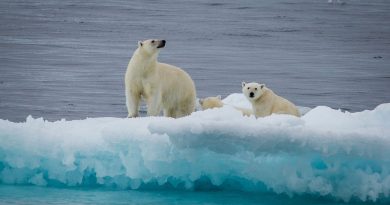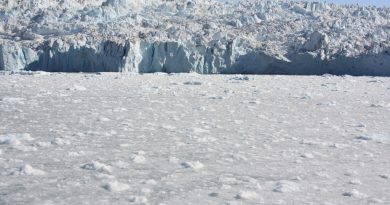Don't Feed the Wolves!
You know that you’re in a special place when during your orientation briefing they tell you not to feed the wolves that roam around this place freely. “If they come too close to you and you feel threatened, just kick them,” we were told. “They’ll just go away.” Back where I come from you don’t let a wolf come anywhere near you, let alone a whole pack. But here they seem rather harmless.
I’m in Alert.
Its official name is Canadian Forces Station Alert (CFS Alert). And this place proudly calls itself “the world’s northernmost permanently inhabited settlement.” We are indeed at the northernmost tip of Canada, on the northern tip of Ellesmere Island, Nunavut. My coordinates if you want to look it up on Google Earth are: 82° 30′ 0″ N, 62° 19′ 0″ W.
A Wikipedia search will tell you that this place is a “Canadian Forces signals intelligence facility,” which means that all the antennas we’re not allowed to photograph and film are used to intercept communications across the Arctic Ocean in Russia and perhaps a few other places.
While the Cold War is over, high-tech spooking never went out of fashion it seems.
And with the warming Arctic and the race to claim the riches that are still locked beneath the surface of this frozen ocean, Alert is taking on a new significance. Canada has set its eyes further north, all the way to the North Pole. But so do Russia, the United States, Norway and Denmark (Greenland).
Alert is also a reminder for the rest of the world that Canada is an Arctic power that can operate and extend its reach anywhere in this frozen frozen tundra and ice.
Alert has a feel of a mining camp, spiked up with some military discipline. It’s run by a staff of about 70 military and civilian personnel who rotate on six-month assignments. It takes special people to operate in this environment, even with all the comforts of modern life (they serve fresh fruits and vegetables with every meal). I’ve never seen more cheerful people than here.



